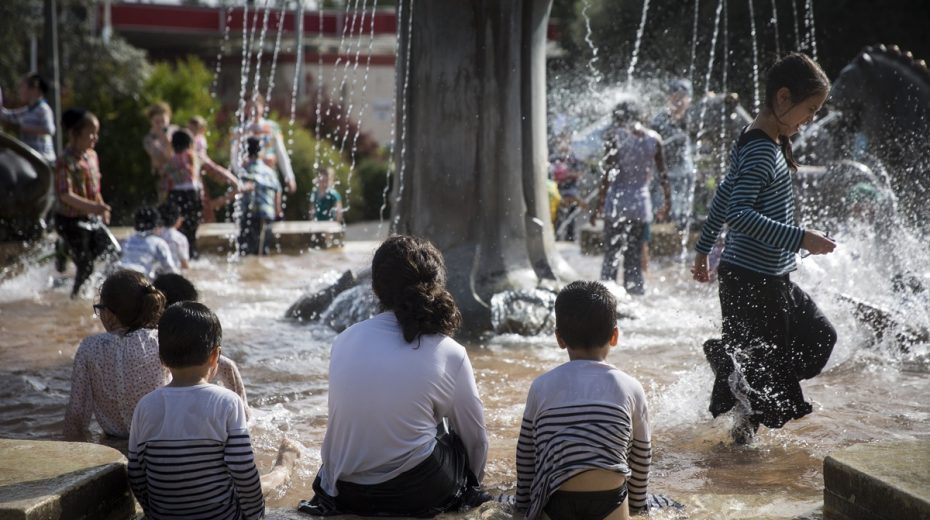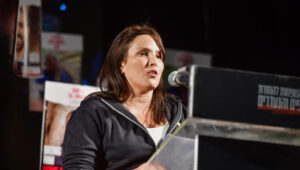The rising prices for fruit and vegetables are just the beginning. Everywhere you look there is dispute over water, whether in Iran, Syria, Iraq or Jordan. Insufficient yields in agriculture result in a shortage of basic foodstuffs, and rampant economic crises are a threat to the Arab governments and dictatorships. Armed conflicts have already broken out in the region due to drought and water shortages.
From an Israeli perspective, the whole thing has a worrying prognosis. Israeli environmental and security experts view the situation with increasing concern. This is particularly true of agriculture in the Middle East. Isfahan, Iran’s third largest city, has become the arena for protests against water shortages. The Zayanderud, once the largest river in that region of Iran, has run dry. Tehran is not doing anything. Stone-throwing Iranians have been protesting for weeks, and police are responding with live fire. Global climate change is a plague for the peoples of the Middle East.
All Israeli research and studies predict a dangerous drought in the Middle East. It will be worse than anything we’ve known for the past hundred years. The Israeli experts speak of a mega-drought, and this will become increasingly clear in the next few years. Water sources, agriculture and nature in the region will be adversely affected. For this reason, Israel’s National Security Council has put climate change and impending water scarcity on its strategic agenda. According to Israeli researcher Shira Efron at the Institute for National Security, the drought has already begun: “Water shortages are becoming existential, especially for the Arab countries in our region.”
This also applies to the Jewish state, albeit to a lesser extent, because Israel is developing new technologies in agriculture and water production, which will also be a blessing for the Arab peoples around us. According to the Max Planck Institute, there could be more climate refugees from the Middle East and North Africa. Actually, this is nothing new, as it is reminiscent of the biblical narrative. Joseph’s brothers went to Egypt because of the famine in Canaan. Certain areas in the Middle East will be so inhospitable because of the high temperatures and lack of water that no one can live there. Temperatures are rising twice as fast in the Middle East as in the rest of the world. The average temperature here could rise by 4 degrees Celsius by 2050. In addition, the Middle East is a region with unstable leadership. Hardly any country has institutions that deal with the impending hardship.
In Israel, various institutions and hi-tech companies are trying to prevent this famine with technological assistance. The chairman of the union of Israeli farmers, Avshalom Abu Vilan, remains optimistic. He underlined that Israel is the most advanced country in the world when it comes to recycling water for agriculture:
“80 percent of the wastewater in Israel is reused in agriculture. This is followed by Spain with 26 percent. Today, the drinking water comes from the desalination plants in Israel. 30 years ago we used 850 million cubic meters of water a year, today it is only 420. Israel’s agriculture will still exist in 2050, because its agriculture is constantly reinventing itself.”
Perhaps one day the Arab peoples will knock on the borders of Israel and ask for help, just as Joseph’s brothers did in Egypt. And just as Joseph became a blessing to his brothers, so Israel can be a blessing to neighboring peoples.















